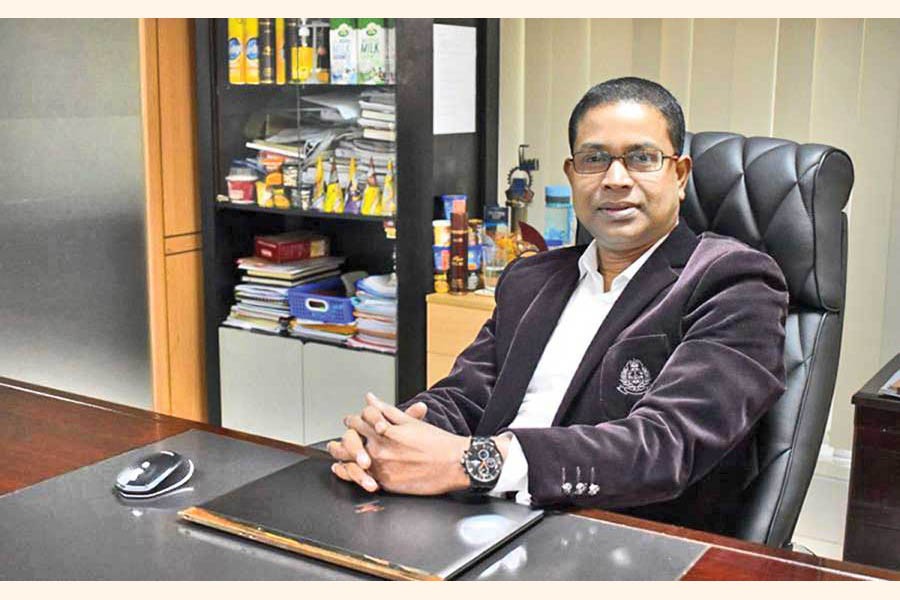A chief executive officer (CEO) is the highest-ranking position in a company, primary responsibilities of a CEO includes making major corporate decisions, managing the overall operations and resources of a company, acting as the main point of communication between the board of directors and corporate operations and being the spokesperson of the company.
A question that aspiring students, freshers and entrepreneurs frequently ask in their minds-- what a typical day looks like for a CEO. The simple and quick answer is "Every day is different." However, that does not offer much detail to those just taking their first step on the road to become the CEO. Through this article, the author introduces GM Kamrul Hassan to describe a typical day of a CEO of a leading business conglomerate.
Kamrul is currently servicing as the Group CEO at IGLOO Ice-cream, Dairy and Food Limited, the leading ice cream, dairy and consumer brand of the country. He has a diverse career spanning multiple industries. Before joining IGLOO, he worked at some of the leading multinationals and local conglomerates including Nestlé, New Zealand Dairy, Rahimafrooz, and PRAN-RFL, in various important roles. He won the South Asian Business Excellence Award 2017 in the category of Best CEO in FMCG- Food and Beverage- hosted by the World HRD Congress and Endorsed by Asian Confederation of Businesses.
Here are his typical daily activities:
Kamrul's day starts early in the morning.
6:30 am: Wakes up, freshens and takes his tea
6:45 am to 7.30 am: Allocated for son and daughter for dressing them up, feeding them breakfast and then start for school
7.30 am to 8.30 am: This is the commute time to reach the Sonargaon Hotel and by this time he takes his breakfast in the car.
8.30 am to 9.30 am: Hits the gym at Sonargaon Hotel and does the routine workouts and swimming
9.30 am to 9.45 am: He starts for office and reaches there in his casual dress.
Around 10.00 am: He changes into a formal business attire, drinks a cup of tea and starts the official work.
After that, he conducts a scheduled meeting with different teams like sales and marketing team, factory team, finance and administration team, procurements and logistics team.
2.00 pm: He takes his lunch. Then he performs desk work about planning and execution of various aspects of the business entity.
Around 4.00 pm: He discusses with DMDs, MD of Abdul Monem Limited. Every day he spends at least an hour with the MD of the company Mr. Abdul Monem to discuss concerns and strategies of IGLOO.
4.00 pm to 6.00 pm: He meets with visitors from all aspects of life to deal with their queries.
7.00 pm to 8.30 pm: He performs desk work for planning and administration, execution of day-to- day and future activities.
Around 8:30 pm: He starts for residence and reaches there by 9.30 pm.
After reaching home he spends some time with his family and have dinner by 10 pm.
Kamrul's daily activities end when he goes to the bed at around 11 pm.
However, he allocates a day in the week to visit markets in Dhaka city and another day to make visit outside of Dhaka to talk with the customers, shop keepers and dealers to understand the present condition as well as the barriers faced by different stakeholders. Kamrul Hassan has been recognised as a career coach. He loves to work for the youth. Very often he conducts various training sessions for aspiring youths of the nation.
Here are a few tips for aspiring young professionals from Kamrul Hasan.
Work hard: If you want to make progress in your personal and professional life, there is no alternative to working hard with utmost sincerity, devotion and honesty.
Maintain honesty and integrity: Maintaining honesty and integrity is the most important aspect of the career. It is also about commitment and dedication. You are honest when you properly perform your responsibility, work hard for eight hours at your workplace and when you deliver your best. It means you care about your team, partners, and stakeholders.
Networking: Build a relationship with professionals. Talk with them and learn from them. Try to join various learning platform and professionally use social media.
Try to learn: Keep learning new things which add value to your career. Stay updated with new trends of technology and read books.
The writer is a public relations (PR) professional, currently working in an international development organisation. He can be reached at [email protected]


